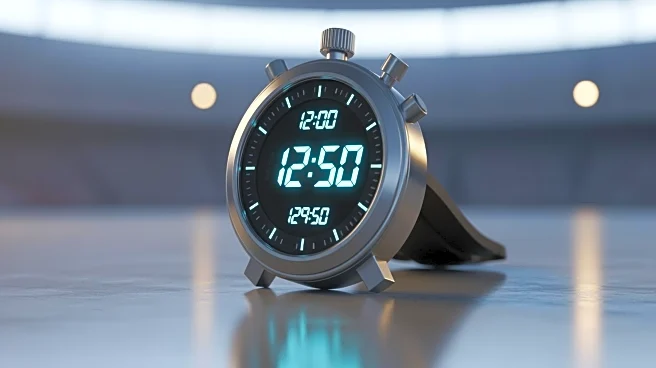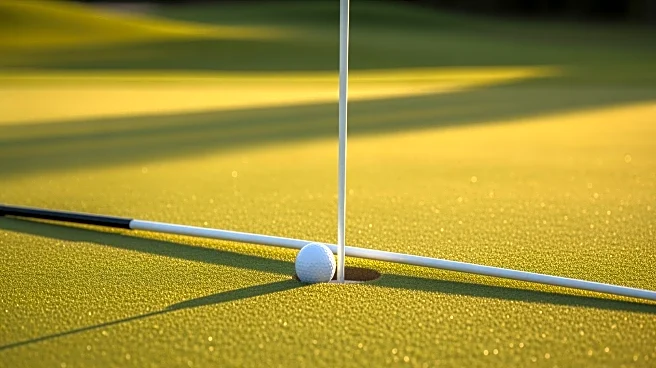What's Happening?
World Athletics has released the competition schedule for the Los Angeles 2028 Olympic Games, marking a historic first where athletics will span the entire Olympic period. The schedule is designed to maximize potential doubles in events such as the 100m
& 200m, 200m & 400m, and others, allowing athletes like Noah Lyles to emulate past Olympic legends. The athletics events will begin on July 15, 2028, with the women's 100m taking center stage, followed by the men's 100m final on the second day. The schedule includes 17 finals across 20 sessions, with a new repechage format providing improved recovery time for athletes.
Why It's Important?
The comprehensive schedule for the Los Angeles 2028 Olympics is significant as it aims to sustain global interest throughout the Games by featuring athletics from start to finish. This approach not only honors tradition but also introduces innovative elements like the mixed 4x100m relay. The schedule allows athletes to pursue multiple medals, potentially increasing their visibility and marketability. It also reflects a collaborative effort between World Athletics, LA28, and broadcasting partners to enhance the viewing experience and inspire future generations.
What's Next?
World Athletics will continue to work with the LA28 Organizing Committee to finalize the detailed timetable over the next 2.5 years. This collaboration will ensure that the schedule meets the needs of athletes and broadcasters while maintaining the excitement and tradition of the Olympic Games. Stakeholders, including athletes and sponsors, are likely to prepare for the opportunities presented by the new schedule, potentially influencing training and marketing strategies.
Beyond the Headlines
The inclusion of a mixed 4x100m relay and the repechage format highlights a shift towards more inclusive and athlete-friendly competition structures. These changes could set a precedent for future Olympic Games, promoting gender equality and athlete welfare. The focus on maximizing potential doubles may also encourage athletes to diversify their skill sets, impacting training methodologies and competitive strategies.















